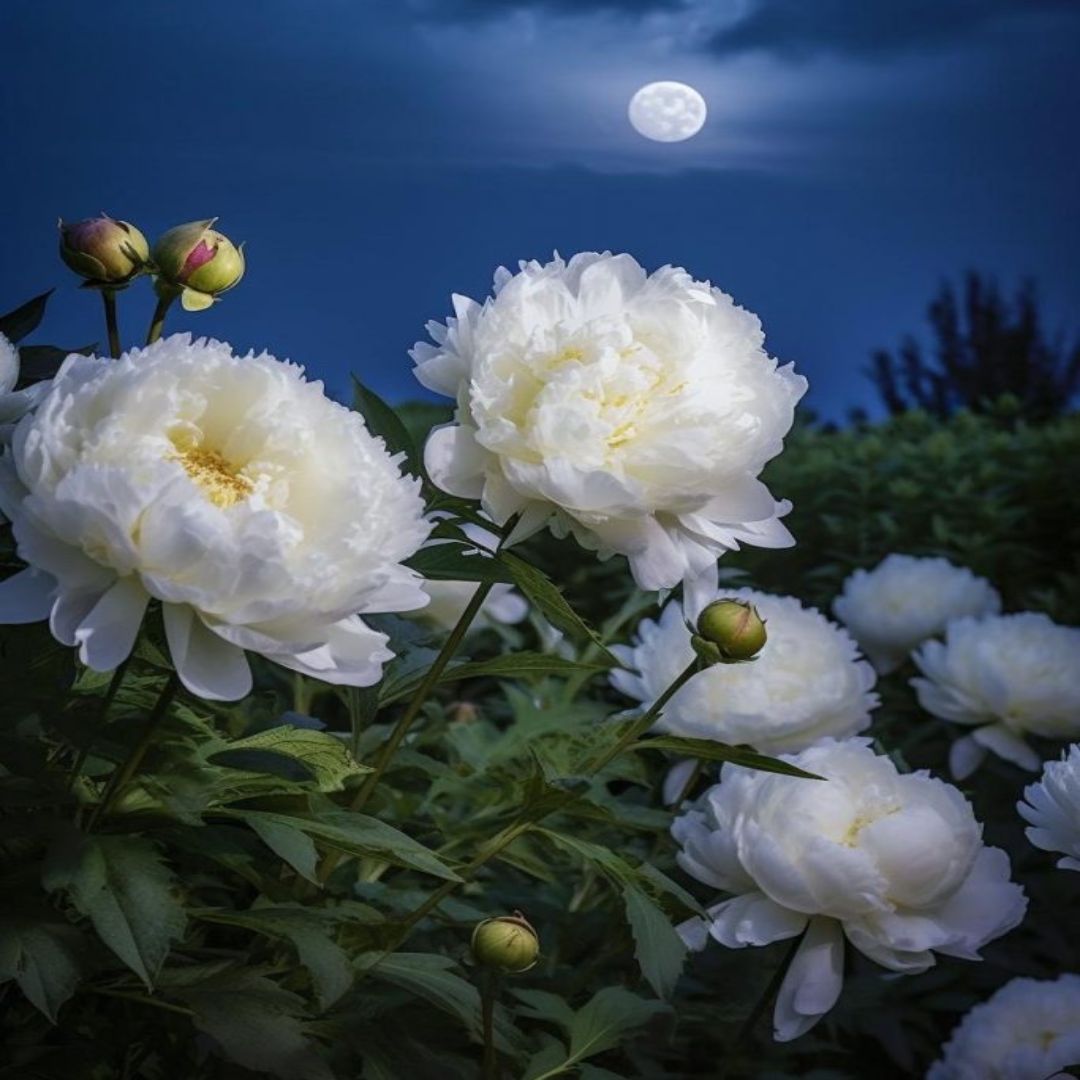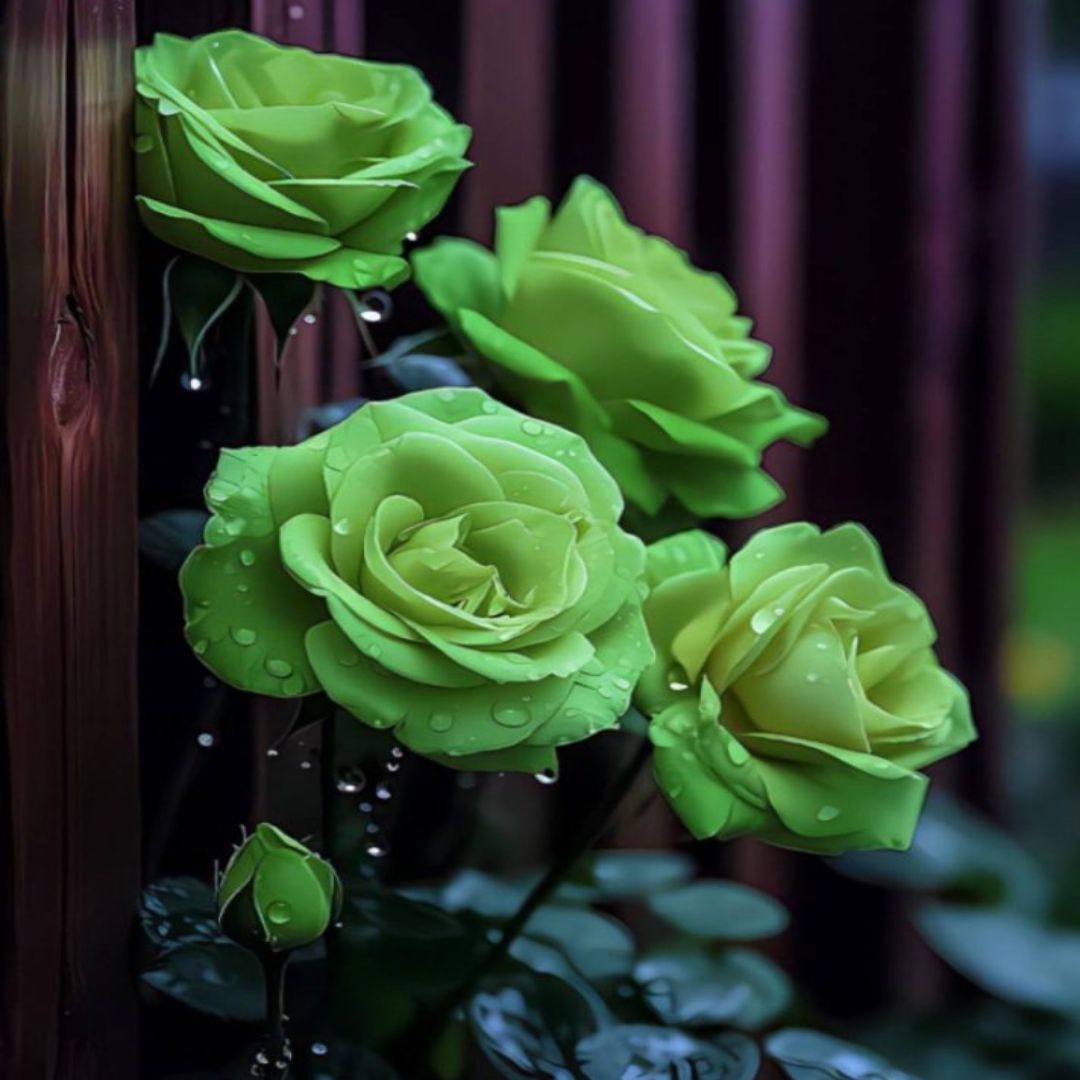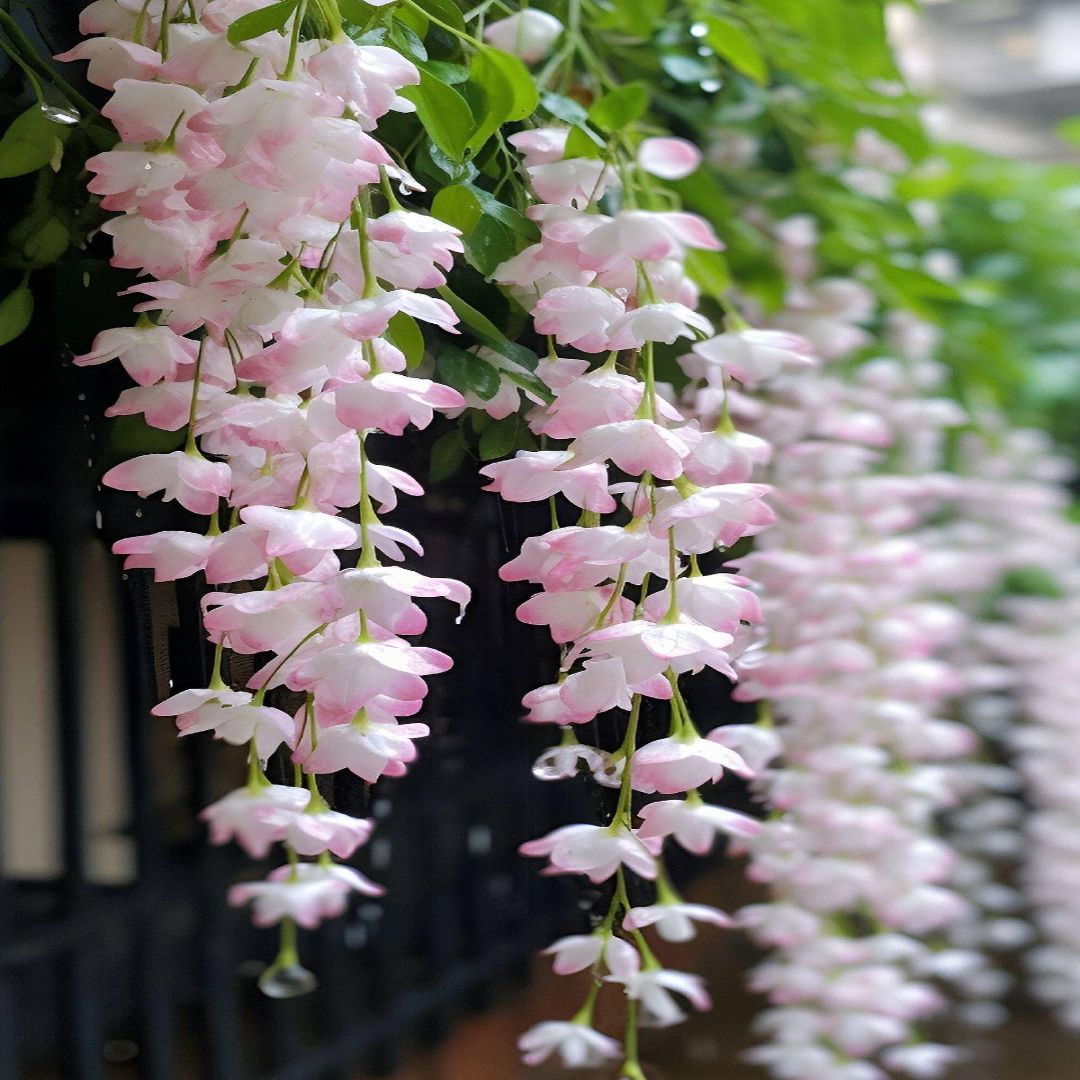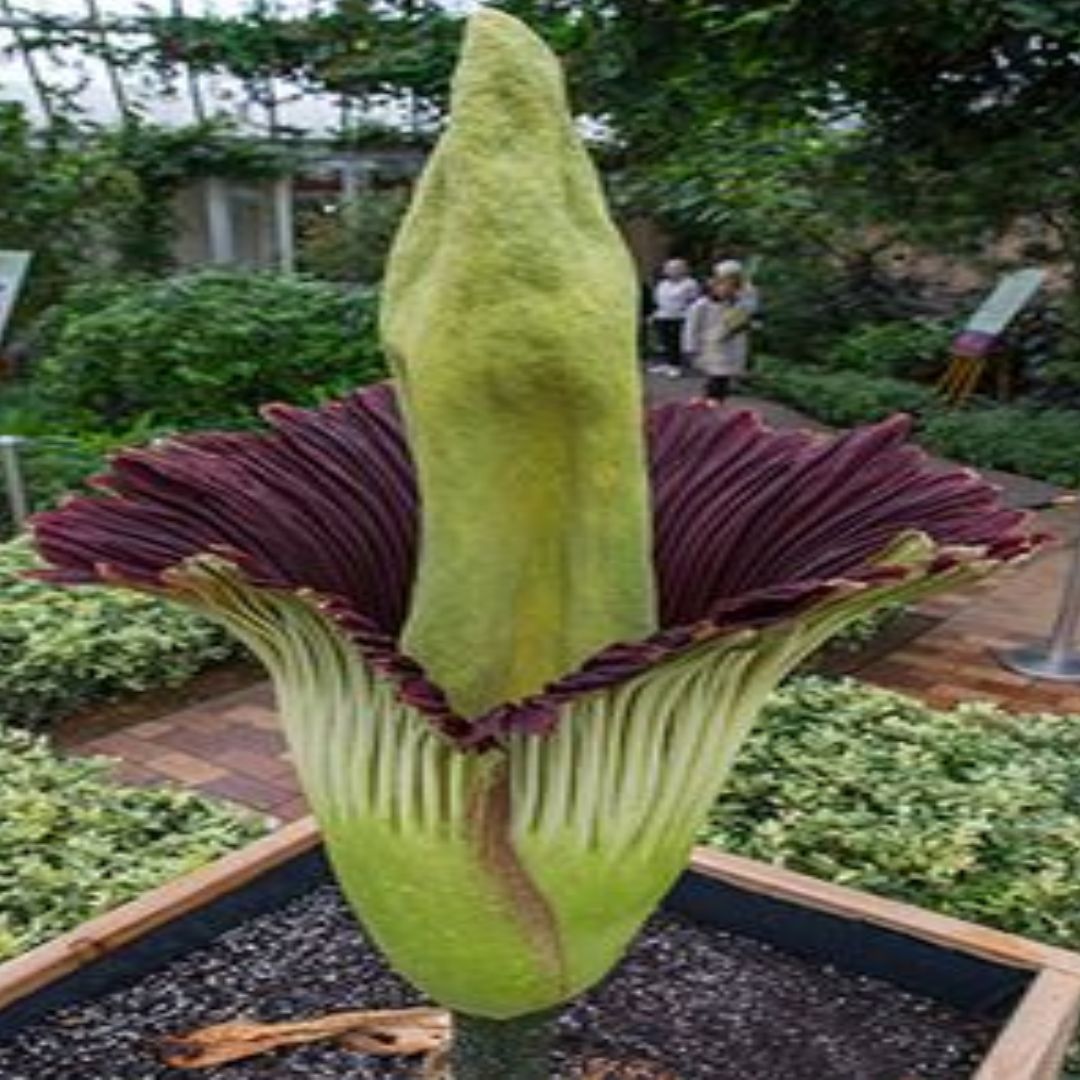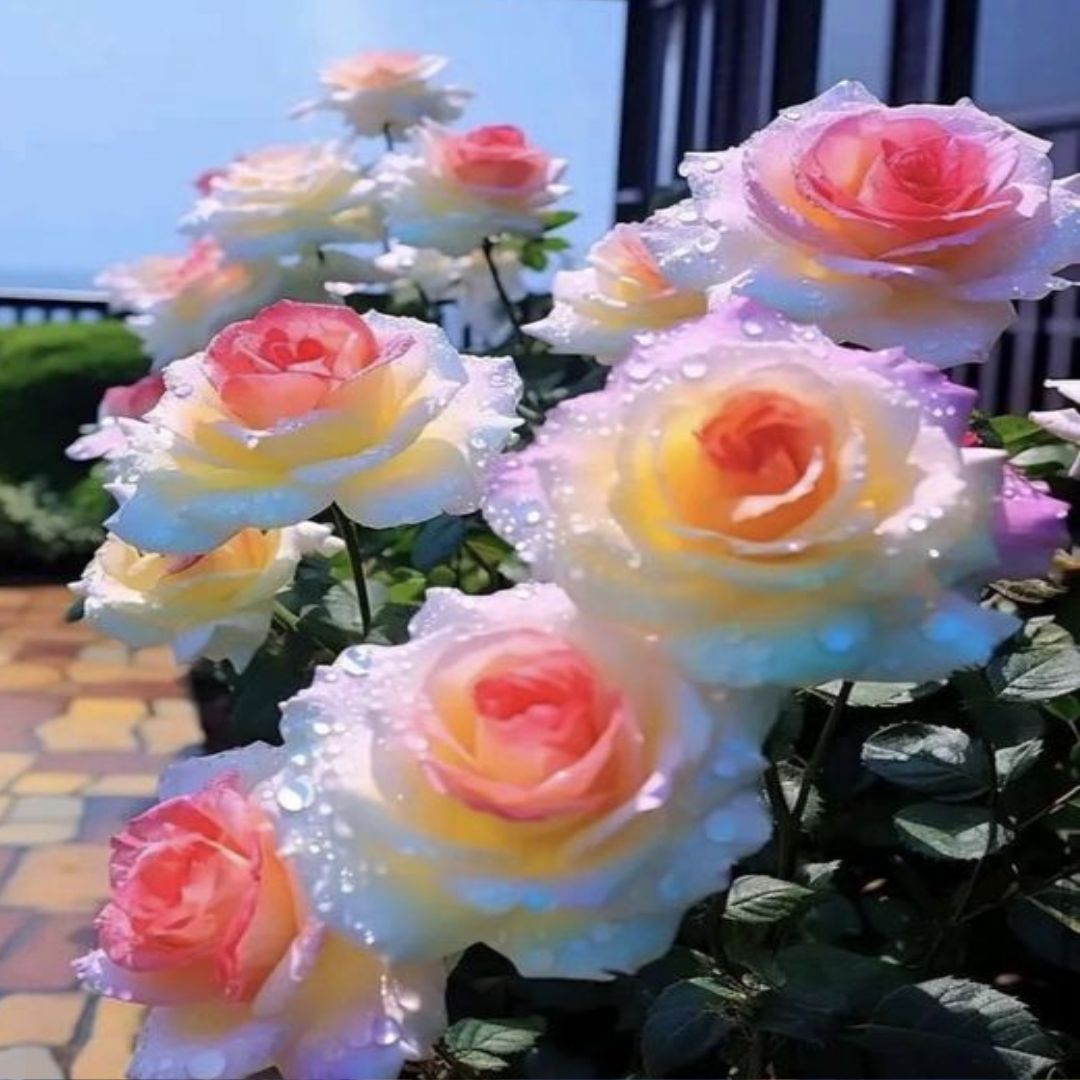Giant flowers are a striking garden focal point and what better way to stand out than with plants that have usual blossoms.
If you’ve ever seen the largest freesia in the world, you’ll know just how impressive plants with giant flowers can be.
These garden favorites tend to grow larger than usual versions of plants with small flowers, which means they stand out in any garden and make sure your visitors can’t help but see them.
A variety of plants with giant flowers are available to plant at home now, whether you want something that grows as an annual or perennial.
The unique appearance of these plants will enhance any garden and wow your friends when they visit!
1. Mammoth Russian Sunflower

Latin Name: Helianthus annuus ‘Russian Mammoth’
The giant mammoth sunflowers, as the name suggests, open to 10-16 inch broad flowers on a plant that can grow up to 12-24 feet tall!
2. King Protea
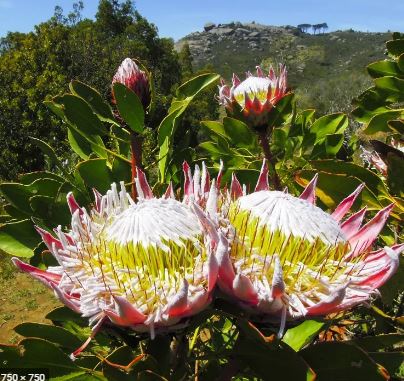
Latin Name: Protea cynaroides
This South African national flower has artichoke-like flowers that can be 6-10 inches wide. The bracts on the blooms are pointed and bright.
3. Bigleaf Magnolia
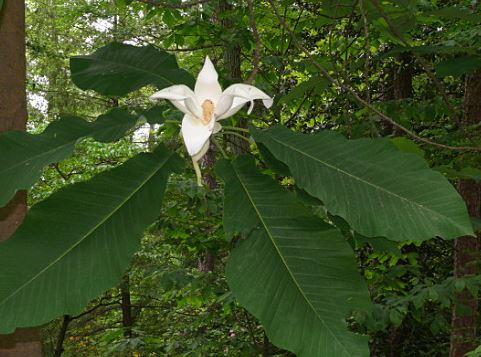
Latin Name: Magnolia macrophylla
Bigleaf Magnolia is known for its massive oblong-ovate green leaves and attractive white blossoms that can reach 8-12 inches in size.
4. Corpse Flower
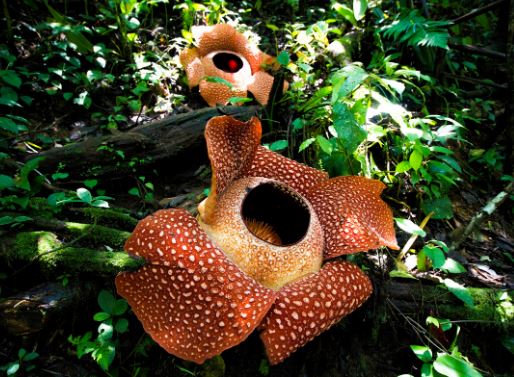
Latin Name: Rafflesia arnoldii
This flower, sometimes known as the huge Padma, is native to the Indonesian jungles and may grow to be 3-4 feet wide! The bloom has an awful stench, similar to rotten meat.
5. Ornamental Onion

Latin Name: Allium ‘Globemaster’
From late spring to early summer, the spherical flowers of ornamental onions open in 10-inch violet-purple orbs on 2-3 foot long stems.
6. Primal Scream Daylily

Latin Name: Hemerocallis ‘Primal Scream’.
The vibrant tangerine orange blooms can grow to be 6-8 inches across.
This cultivar is tetraploid, which means it contains four times the typical number of chromosomes that produce large flowers.
7. Dinnerplate Dahlia

Latin Name: Dahlia
Dinner plate dahlia blooms 8-12 inches wide in a variety of colors.The best are ‘Lady Darlene’ with crimson petals and ‘Alex Mingus’ with yellow blossoms!
8. Candle Larkspur
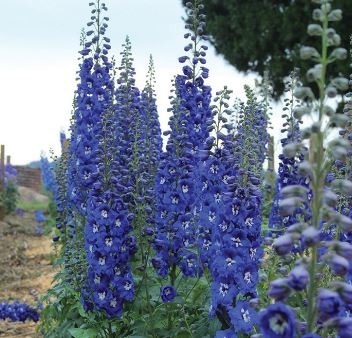
Latin Name: Delphinium ‘Cobalt Dreams’.
Blue flower spikes can grow up to 2-3 feet tall and are an eye-catching hue of blue! This cultivar is part of the New Millennium Series and can resist high temperatures and humidity.
9. Burgundy Chinese Hibiscus
Latin Name: Hibiscus ‘Black Dragon’.
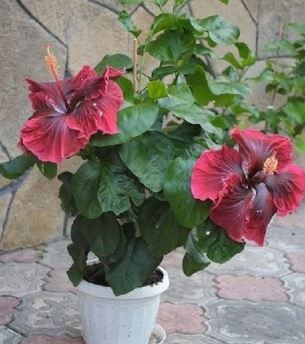
The velvety-rich maroon petals are 8-10 inches wide. The center of the bloom is practically black, giving it a rich appearance.
10. Night-Blooming Cereus
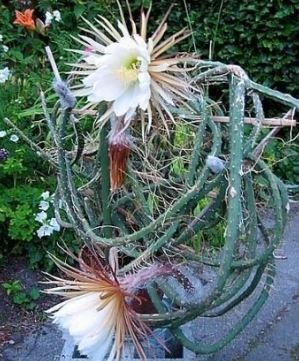
Latin Name: Selenicereus grandiflorus
It is an orchid cactus with flowers that can grow to be 6-9 inches wide. The blooms have a strong aroma and only bloom at night.
11. Oriental Lily
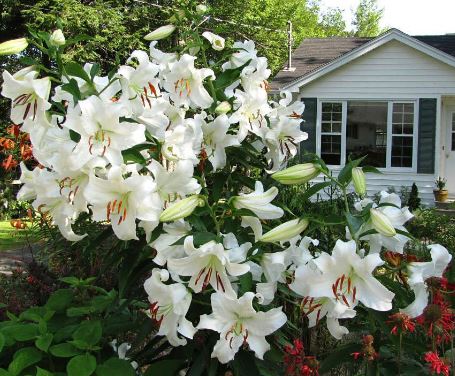
Latin Name: Lilium ‘Casa Blanca’
The pure white, fragrant blossoms can grow to be nearly 8-12 inches tall.
They arrive in bunches, making them appear larger than they are.
Also, read about what is Lilium Plant.
12. Shimadaijin Tree Peony
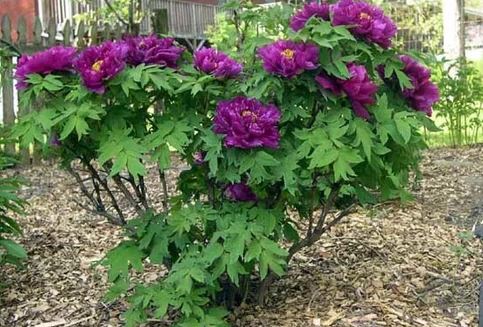
Latin Name: Paeonia suffruticosa ‘Shimadaijin’
‘Shimadaijin’ has perfumed blooms that can measure 5-8 inches wide and grow to be 4-5 feet tall.
Pink, yellow, white, magenta, and red blossoms are available.
13. Sacred Lotus
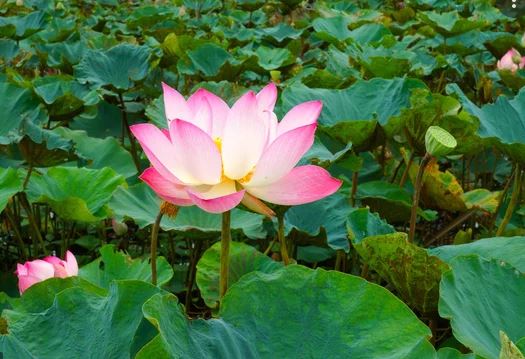
Latin Name: Nelumbo nucifera
This gorgeous pond plant, sometimes known as the Egyptian lotus, has rose-colored blooms that fade to pink.
The flowers are 8-12 inches across and have a distinct aroma.
14. Limelight Hydrangea

Latin Name: Hydrangea paniculata ‘Limelight’.
This hydrangea has a bloom cluster that can reach 6-8 inches across.
The blooms begin in a chartreuse hue and then fade to a pink shade.
15. Indian Summer Rudbeckia

Latin Name: Rudbeckia hirta ‘Indian Summer’.
With flowers that can be 6-10 inches broad, this short-lived perennial is the ‘All America Selections’ winner.
Grow it in direct sunshine for a bright yellow color!
16. Mrs. Edwards Whitaker’s Water Lily
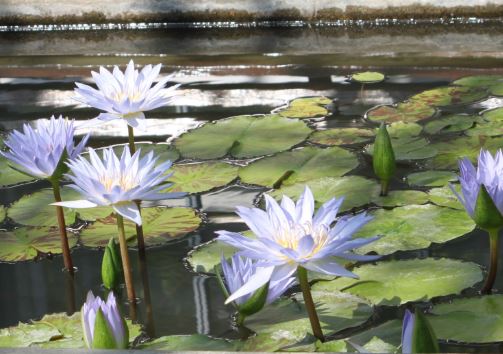
Latin Name: Nymphaea ‘Mrs. Edwards Whitaker’
This hereditary cultivar of the classic tropical water lily with 8-12 inch or wider blossoms.
The lavender petals grow to white with gold stamens in the center of the blooms.
17. California Giant Zinnia
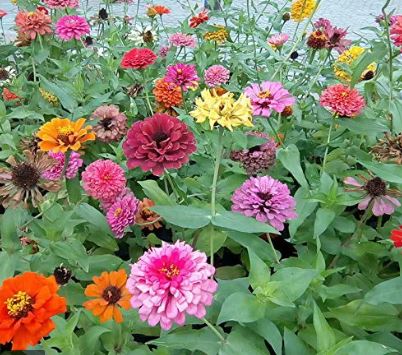
Latin Name: Zinnia ‘California Giant’
The ‘California Giant Mix’ Zinnia comes in a variety of colors, including white, pink, purple, yellow, and orange.
The blooms are 3-5 inches large and open on tall stems.
18. Early Large Flowered Clematis
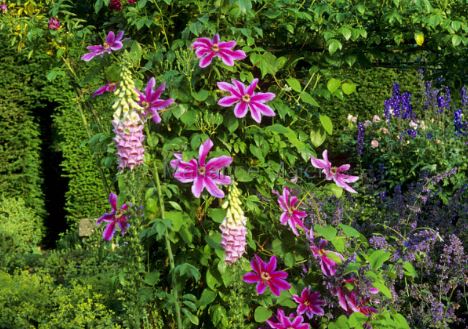
Latin Name: Clematis ‘Fireworks’
From late spring to early summer, and again in the fall, the blooms open 3-7 inches.
Their petals are lavender-blue with brilliant magenta streaks.
19. Bear’s Breeches

Latin Name: Acanthus
Acanthus is the botanical name for the Acanthus mollis species of perennial garden flower. It is also sometimes known as Bear’s Breeches, Bear’s Tobacco, Spreading Acanthus, or Bear’s breeches.
The flowers are breathtakingly large and pink or white, with a red center and petals that droop at the ends to form a flower shaped like a cross.
This plant is easy to grow in any soil conditions and is a great choice for attracting bees.
The soil should be kept moist but not soggy, and the plant can be pruned back in early spring to promote new growth.
The plant dies back in the fall and re-emerges in the spring. It’s best to grow Acanthus plants in a garden bed that gets full sun, but they can be grown in pots too.
They have leaves that grow upright, which grow to about 3 feet tall, and the large flowers grow a little above the leaves on tall stems.
20. Pitcher Titan
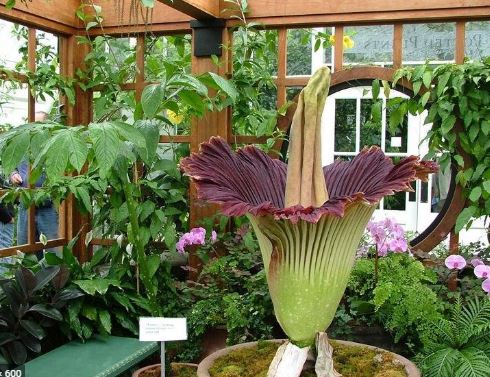
Latin name: Amorphophallus titanum
This flowering plant can reach a height of three meters and weigh up to 75 kg! Can grow up to 16.6 cm per day.Like the raflésias, the Titan Pitcher also has an unpleasant smell of rotting flesh to attract pollinators, especially beetles.Many people believe that this plant is the largest carnivorous plant in the world to attract these insects, These insects are only their pollinators.It can live up to 40 years but blooms only two or three times.
21. Bigleaf Mariposa Lily
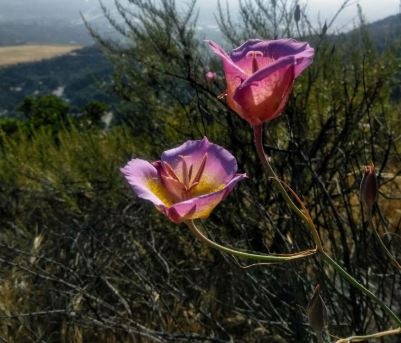
Latin Name: Calochortus macrophyllus
The Bigleaf Mariposa Lily or Calochortus macrophyllus is a species of wildflower native to the Western United States.
Mariposa lilies are loved for their giant fragrant flowers and are often used as cut flowers. The plant can grow up to 3 feet tall and 4 feet wide, making it a great focal point for a garden.
They thrive in soil with a pH ranging from 6.5 to 7.5 and like a soil that is moist, but not soggy.
They are not picky about sunlight conditions and can be grown in full sun or partial shade. To encourage more blooms, you can prune them back after they’ve gone dormant in the fall.
The Calochortus macrophyllus is often used as a garden border plant because of its ability to grow in poor soil. It grows best in areas with cool summers and mild winters.

